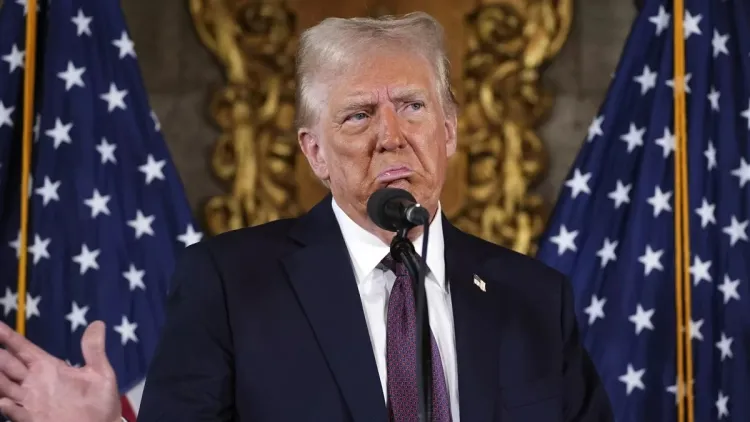Greenland's Parliamentary Elections Amid Growing Tensions with the U.S. Over Trump's Threat
Greenland, an autonomous territory of Denmark, is preparing for parliamentary elections next month, set to take place on March 11th. The election announcement comes amid rising geopolitical tensions, particularly with the United States, as President Donald Trump has repeatedly raised the possibility of a U.S. takeover of Greenland. In response to these threats, Greenland's government is making efforts to assert its sovereignty, with significant legislative actions and diplomatic engagements taking place ahead of the elections.

The Election and New Laws Against Foreign Donations
Greenland's parliament will be holding elections for 31 seats, a crucial political event for the island's future. In a move to safeguard its political independence, Greenland's parliament has passed a law prohibiting political donations from foreign countries, fearing external interference, particularly from the United States. This decision reflects the growing concern within Greenland’s leadership about foreign influence, especially given Trump’s past interest in acquiring the island, which he referred to as "strategically important."
Prime Minister Mute Ed, who is seeking re-election, has urged Greenland's citizens to unite and support the territory’s political and economic sovereignty during these challenging times. The election comes as the island grapples with not only the external threat from the U.S. but also internal discussions about how to balance Greenland's relationships with other global powers.
Trump's Continued Threats Over Greenland
The looming threat of a U.S. takeover of Greenland has been a central issue in recent political discourse. President Trump previously expressed interest in purchasing the island, a proposition that was rejected by Greenland's leaders, most notably by Prime Minister Mute Ed. She has consistently reiterated that Greenland is not for sale but has remained open to American business ventures in the territory. Despite this, Trump’s insistence on Greenland’s strategic importance has added a layer of uncertainty and concern to the island’s political landscape, particularly as the elections approach.
In light of this, the passing of the law banning foreign political donations is seen as a protective measure by Greenland's government to maintain autonomy and prevent undue influence from outside interests, especially from the U.S.
Denmark and the UK: Strengthening Arctic Security Cooperation

As Greenland faces these geopolitical challenges, Denmark's Prime Minister, Mette Frederiksen, has been actively engaging in diplomatic talks with other key global players. Most recently, she met with her UK counterpart, Keir Starmer, in London to discuss security concerns in the Arctic region, including Greenland. During their talks, both leaders emphasized the importance of strengthening cooperation on security issues in the high north, a region that is becoming increasingly important as climate change opens up new shipping routes and resource exploration opportunities.
Frederiksen described the UK as one of Denmark's most important allies and stressed the need for joint efforts to ensure security in the Arctic. The growing strategic significance of the Arctic region, including Greenland, is not only a matter of geopolitical interest for Denmark and the UK but also for the broader international community, especially as tensions over natural resources and territorial claims intensify.
Greenland's Sovereignty and International Relations
The upcoming parliamentary elections in Greenland are set against the backdrop of these high-stakes geopolitical dynamics. As the island navigates its relationship with Denmark, the United States, and other global powers, it is also seeking to assert its own identity and sovereignty. The election will likely reflect the public’s stance on how best to engage with the outside world while maintaining the political independence of Greenland.
Prime Minister Mute Ed’s call for unity and cooperation underscores the need for Greenland to solidify its internal political landscape and project a unified front in the face of external pressures. The law banning foreign political donations is a clear statement of intent to protect Greenland’s political integrity from foreign interference, particularly from the U.S., which has shown an interest in the island’s strategic value.
Conclusion: A Critical Juncture for Greenland
Greenland’s parliamentary elections come at a critical time in the island’s history. As tensions with the U.S. continue over Trump’s territorial claims and with Denmark and the UK working together to secure Arctic interests, Greenland finds itself at the crossroads of balancing its political sovereignty with the realities of global geopolitics. The outcome of the elections, coupled with ongoing efforts to shield the territory from foreign influence, will determine the direction Greenland takes in navigating its future relationships with the U.S., Denmark, and the rest of the world.
What's Your Reaction?
















